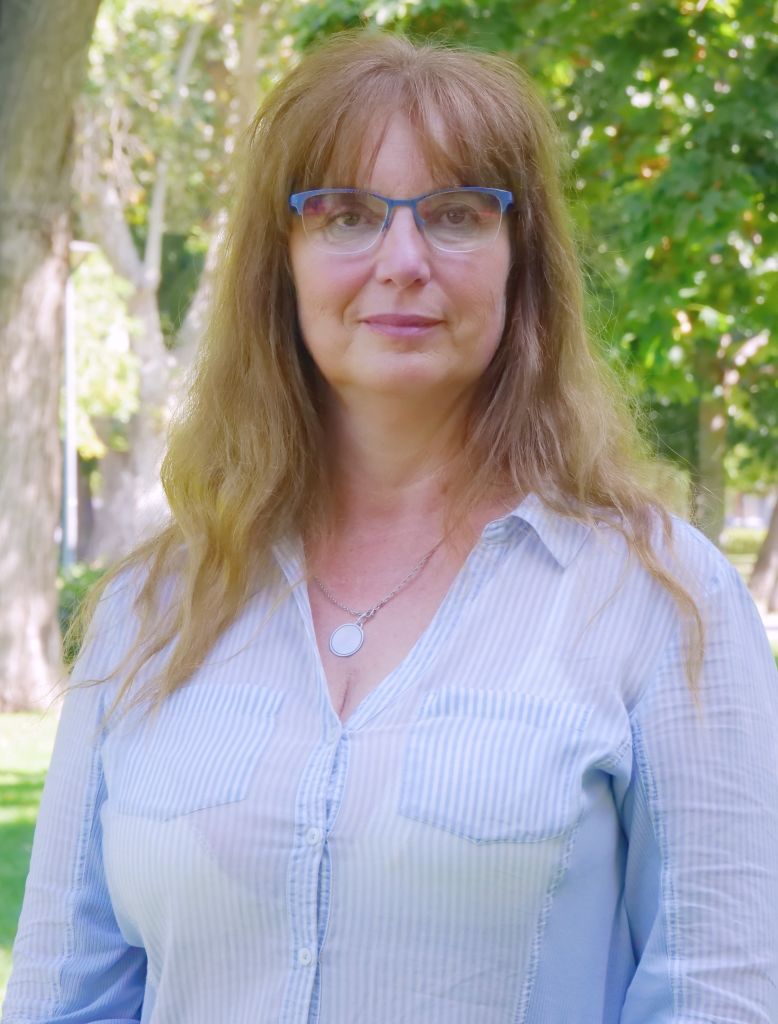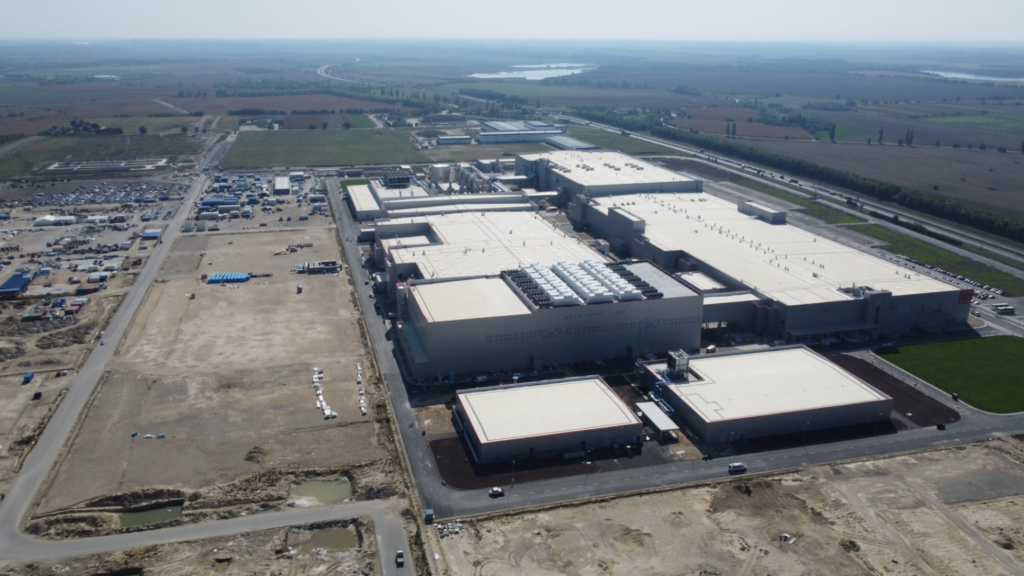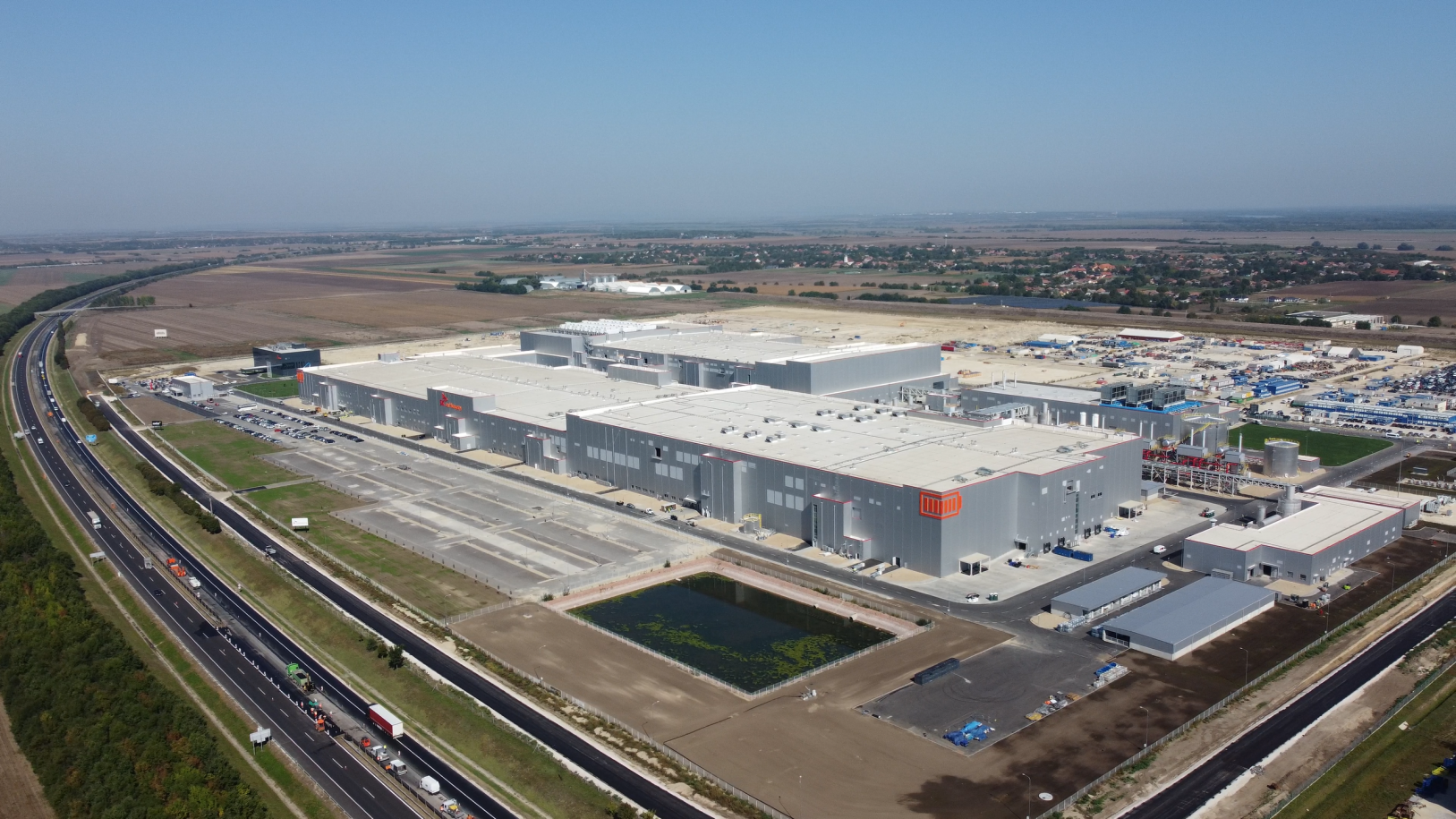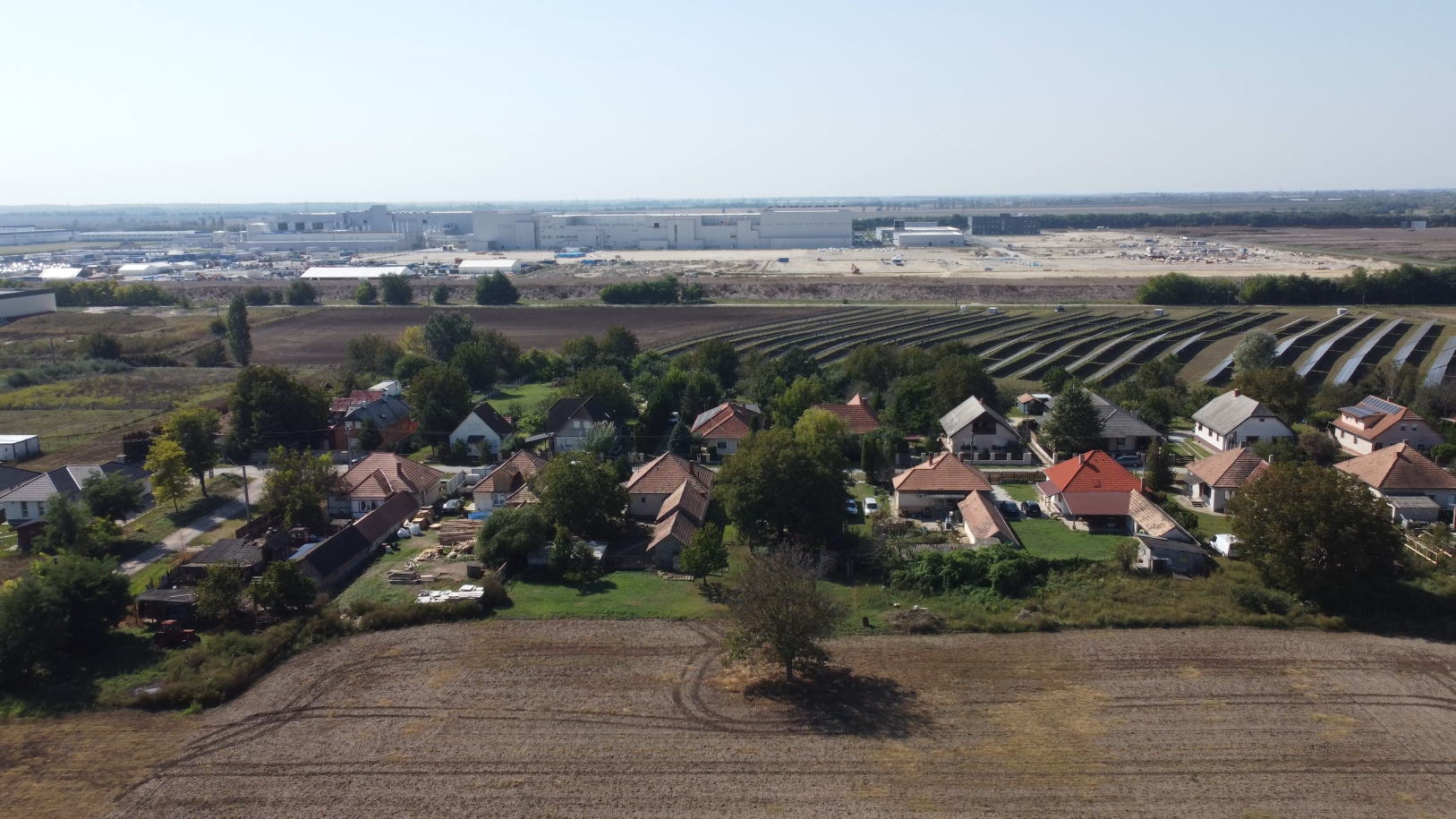The https://english.atlatszo.hu use cookies to track and profile customers such as action tags and pixel tracking on our website to assist our marketing. On our website we use technical, analytical, marketing and preference cookies. These are necessary for our site to work properly and to give us inforamation about how our site is used. See Cookies Policy
Battery cell testing plant to be built next to the battery factory in Iváncsa
SK On Hungary Kft., a South Korean-owned company, has been granted a licence to set up a new plant in Iváncsa, next to the battery factory. The facility called a “European validation plant” is planned to carry out safety testing and destruction of 124,000 battery cells and modules per year. However, the Hungarian authorities have not made the construction of the plant subject to an environmental and disaster management permit.
The Government Office of Fejér County has recently approved the construction of a new plant in the investment area of the battery factory in Iváncsa. So far, almost no information has been published about the plant, and the only way to find out about the licensing procedure is by browsing the government office’s website. The construction of the test plant will add a further source of noise and air pollution to the Iváncsa industrial park – even though the noise from the battery factory, which has been operating since the summer and is considered intolerable, is already a source of discontent among the residents.

The plant will not be part of the existing battery factory, but a separate facility. The new plant will “test and qualify cells and modules for safety and reliability”, according to the preliminary study documentation prepared by Generisk Ltd. for the Global Validation Center authorisation. The new plant will be able to receive battery cells and modules for testing not only from the Iváncsa plant but from all over Europe.
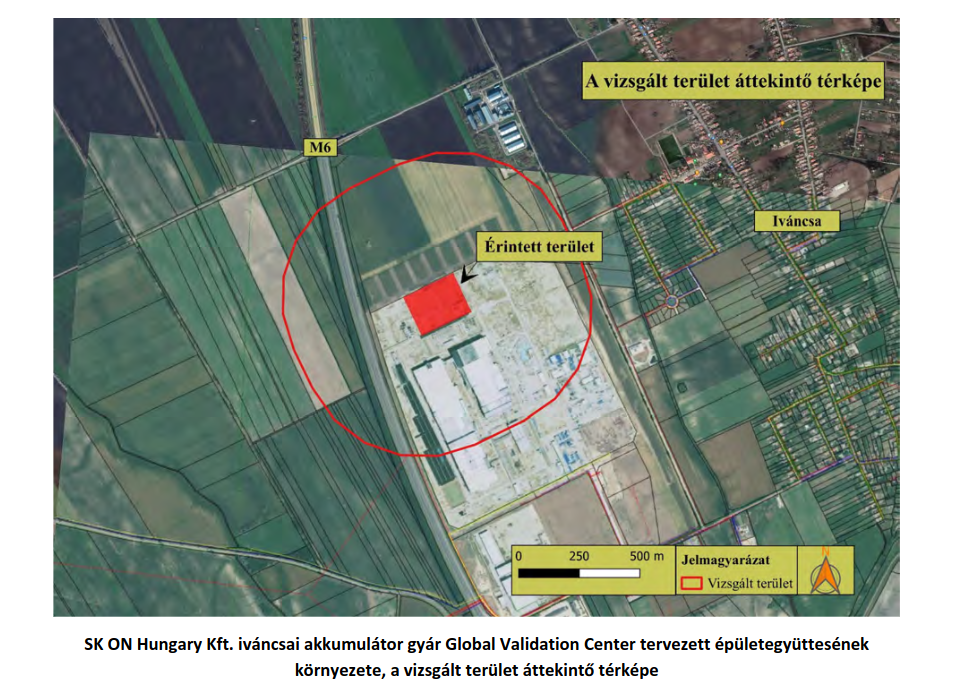
The test plant will be built in the northern part of the Iváncsa investment area. (Source: Preliminary Study Documentation)
There were no environmental or disaster management procedures
At the plant, the test specimens will undergo several procedures – including dropping from a height, piercing, destroying, heat shock, and air pressure testing – and finally, all will be destroyed. Around 124,000 cells and modules are planned to be tested in Iváncsa each year, and the 4,000 tonnes of waste generated each year will be disposed of by Éltex Kft.
For all this, the authorities did not consider it necessary to carry out a detailed environmental impact assessment and disaster management procedure. Although the battery factory of SK On Kft. and the new testing plant will be located on the same parcel number,
the combined environmental impacts were not assessed either.
Indeed, the battery factory has significant emissions – the plant has nearly 900 noise sources, and its air protection zone includes all the residential buildings in Iváncsa. The authority may have thought that the air pollution and noise of the small plant “dwarfs” that of a large factory. This is not the case, of course: the test plant will emit the same pollutants as the battery factory, so the effects will be cumulative.
It is also curious that, despite the hazardous nature of the cells and modules to be tested in the plant, there is no mention of a disaster management licence.
Residents have been suffering from the noise of the battery factory for months
While the authority has given permission for the construction of a new plant, residents of Iváncsa have for months been saying that they find the noise from the battery factory, built 6-700 metres from their residential area, intolerable.
The mayor of Ivácsa, Tibor Molnár (independent) also described the situation as intolerable and called for action to be taken. Mr Molnár also published an information letter from SK On Hungary Kft. promising to reduce noise and install soundproof walls by 31 October.
What is interesting is that the mayor posted in 2021 that a visit to the South Korean company’s factory in Komárom convinced him that the noise from the battery factory in Iváncsa was nothing to worry about.
The company says noise will be within limits
However, it seems that the combined noise impact of the planned test plant and the existing battery factory has been deemed problematic by the authority. This is indicated by the fact that the preliminary investigation by Generisk Ltd. was requested to provide additional investigation data on the appropriate noise protection measures.
However, according to the document submitted by the company, by reallocating noise sources and applying additional noise protection devices, “the noise emissions from the validation centre will be at a level that will ensure that the noise impact of the battery plant on the nearest protected areas will not increase by one tenth of a decibel, so that the limit value will still not be exceeded.”
Experience so far shows that it is in vain for the environmental authority to impose conditions on the construction of noise sources, because the company does not comply with them. Following complaints, the Government Office has issued a decision on noise emission limits and further measures to be taken, which also indicates that noise from the factory affects 133 residential properties in Iváncsa, a town of around 3,000 inhabitants.
The mayor of Iváncsa has lodged a complaint with the environmental authority about the new plant’s permit dossier.
The authority, brushing aside concerns and complaints, granted a permit for the new plant, on the grounds that additional noise protection conditions were imposed on SK On Kft.
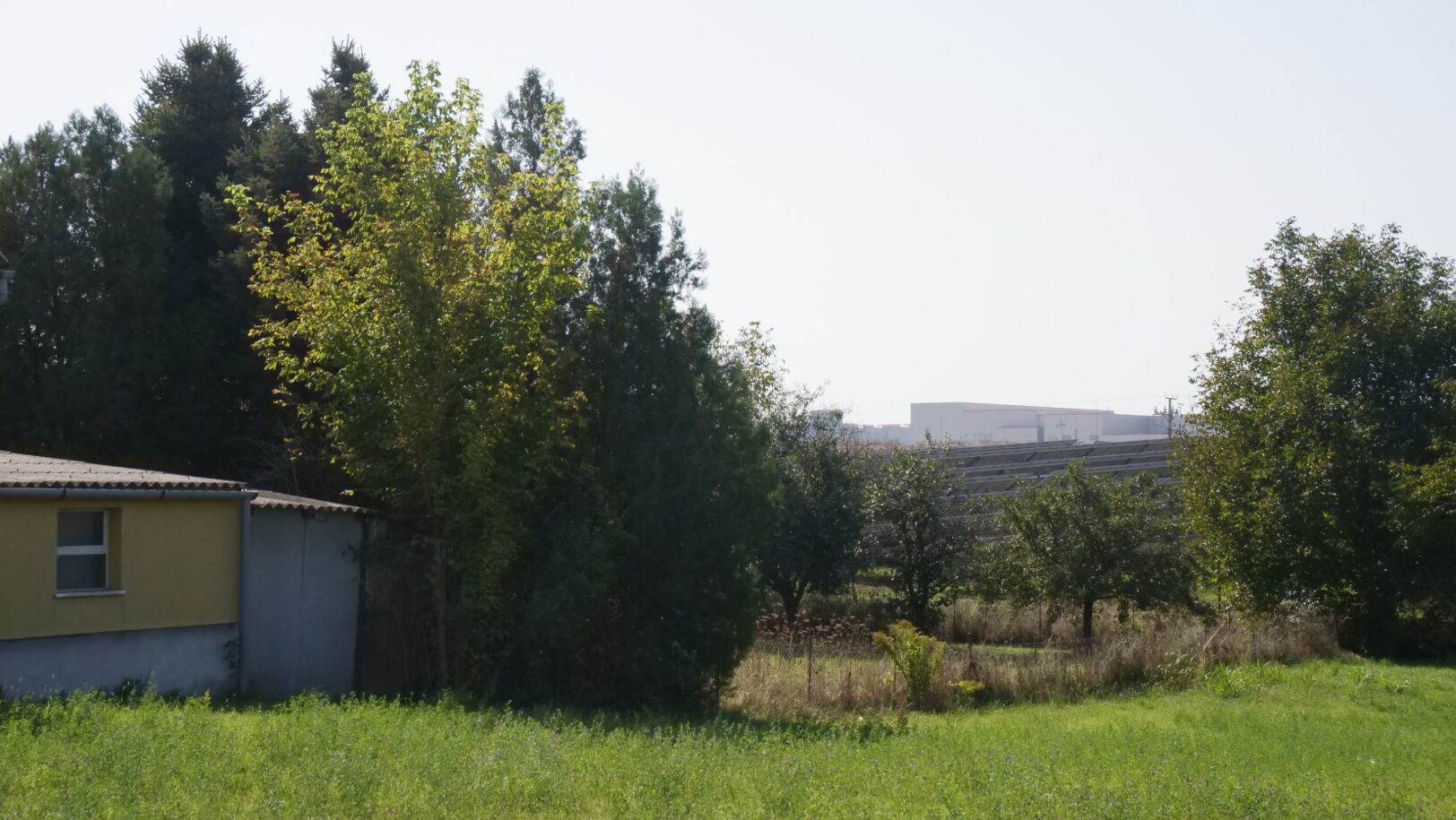
The residents of Jókai Street in Iváncsa can not only see the factory, but also hear it. The battery factory was built 632 metres away from the nearest houses (Photo: Átlátszó/Bodoky Bence)
The factory is not yet working, but it is still noisy
Radio Free Europe/Radio Liberty reported last week that production at the battery factory in Iváncsa will officially start on 6 November. But in a live video from the scene that day, Örs Tetlák (MP from opposition party LMP), deputy mayor of Érd, said that the noise reductions promised by 31 October had not been met and that the noise from the factory’s operations was still disturbing. However, after press reports of the start of production, SK issued a statement denying this news.
According to merce.hu, SK reports that production has not yet started at the Iváncsa factory, as not all conditions for the trial run have been met and various official approvals and other necessary processes have not yet been completed.
The paper also quotes the SK’s statement on noise protection measures. It says that the construction of noise barriers “is ongoing, the first phase of which was completed at the end of October. During this phase, 10 noise barriers were installed at 5 locations. Noise levels were measured again between 3 and 4 November. On the basis of the results, we plan to add further installations if there are sites that do not meet the standards.”
According to the statement, the factory is not in operation – the environmental permit issued at the end of July also required the factory to ensure that it meets the noise limits before it can begin operations.
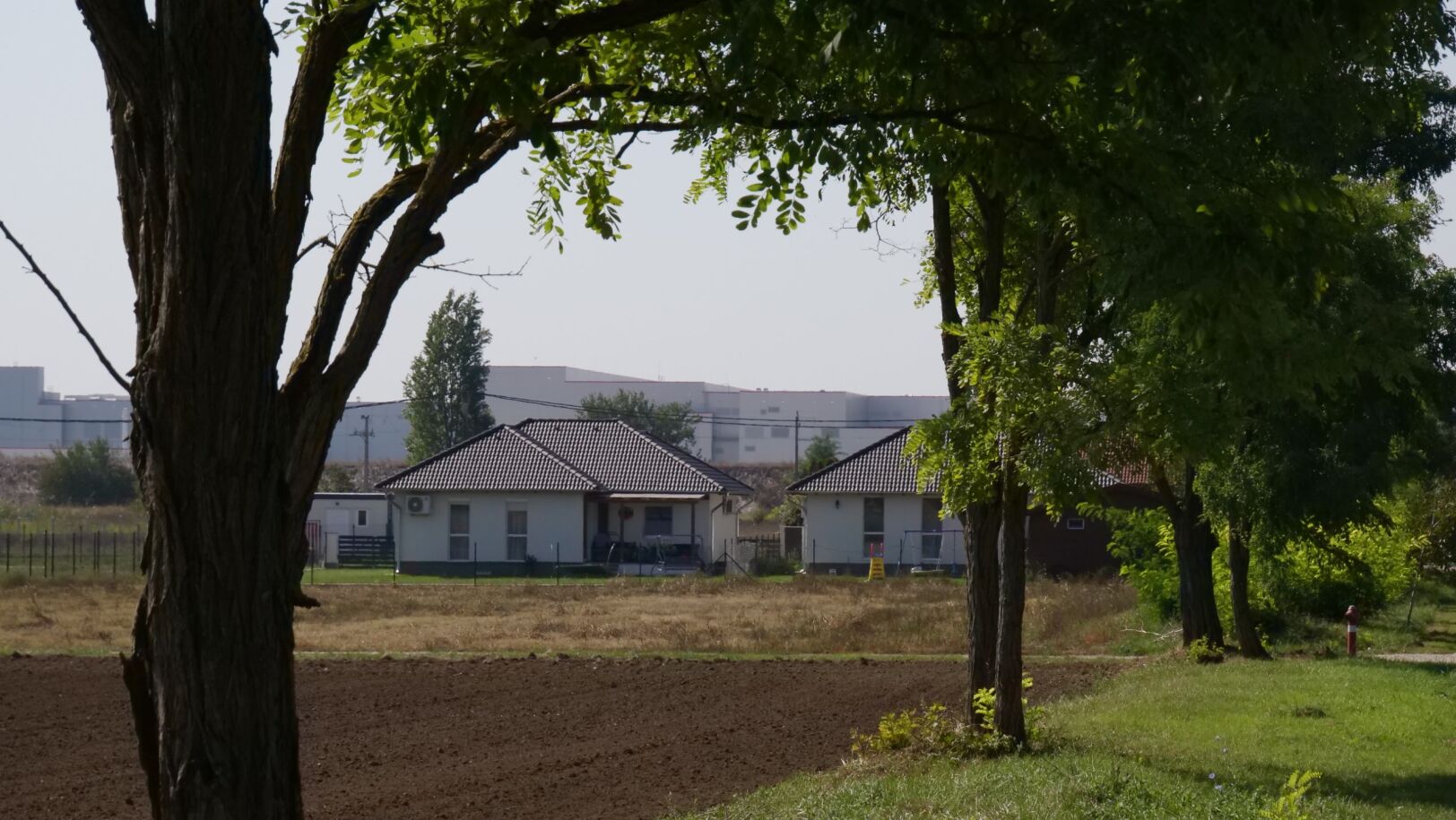
The houses of Iváncsa village, with the battery factory of SK On Hungary Kft. in the background (Photo: Átlátszó/Bodoky Bence)
Developments serving the industrial park are delayed
The European validation plant to be built in Iváncsa has not been announced in Hungary, but the South Korean press reported as early as June 2022 that SK plans to establish quality assurance centres in the United States and Hungary, with an investment of 10.5 billion won ($8.011 million).
There is also no news on whether the Hungarian government will provide funding for this new plant. However, the Hungarian government has provided HUF 80 billion for the construction of the battery factory in Iváncsa and some HUF 134 billion for infrastructure investments, according to G7. Last year, we reported that one of the main winners of the developments serving the industrial park is Lőrinc Mészáros, the richest Hungarian, childhood friend of PM Viktor Orbán, as the water utility investment was carried out by his company.
In any case, the infrastructure improvements being built in the Iváncsa industrial park with public money will obviously also serve the new plant. However, Radio Free Europe/Radio Liberty also reveals that the road and rail improvements have not yet been completed.
According to a government decree published on 30 October, the HUF 84 billion for road and rail improvements has been rescheduled for several years, and the government intends to complete the remaining projects by 2026. However, it is not known when measures to protect the population, such as the installation of protective forests, will be implemented.
Translated by Zita Szopkó. The original Hungarian version of this story was written by Zsuzsa Bodnár and can be found here.
Share:
Your support matters. Your donation helps us to uncover the truth.
- PayPal
- Bank transfer
- Patreon
- Benevity
Support our work with a PayPal donation to the Átlátszónet Foundation! Thank you.
Support our work by bank transfer to the account of the Átlátszónet Foundation. Please add in the comments: “Donation”
Beneficiary: Átlátszónet Alapítvány, bank name and address: Raiffeisen Bank, H-1054 Budapest, Akadémia utca 6.
EUR: IBAN HU36 1201 1265 0142 5189 0040 0002
USD: IBAN HU36 1201 1265 0142 5189 0050 0009
HUF: IBAN HU78 1201 1265 0142 5189 0030 0005
SWIFT: UBRTHUHB
Be a follower on Patreon
Support us on Benevity!
